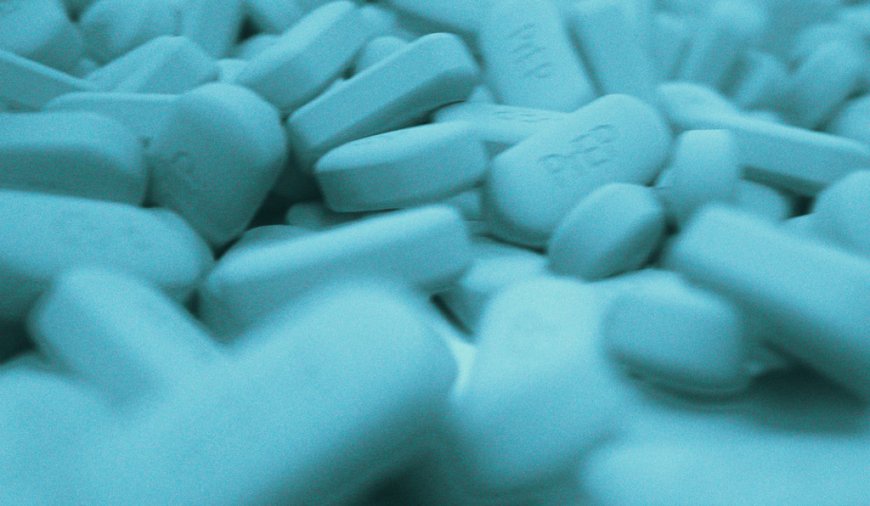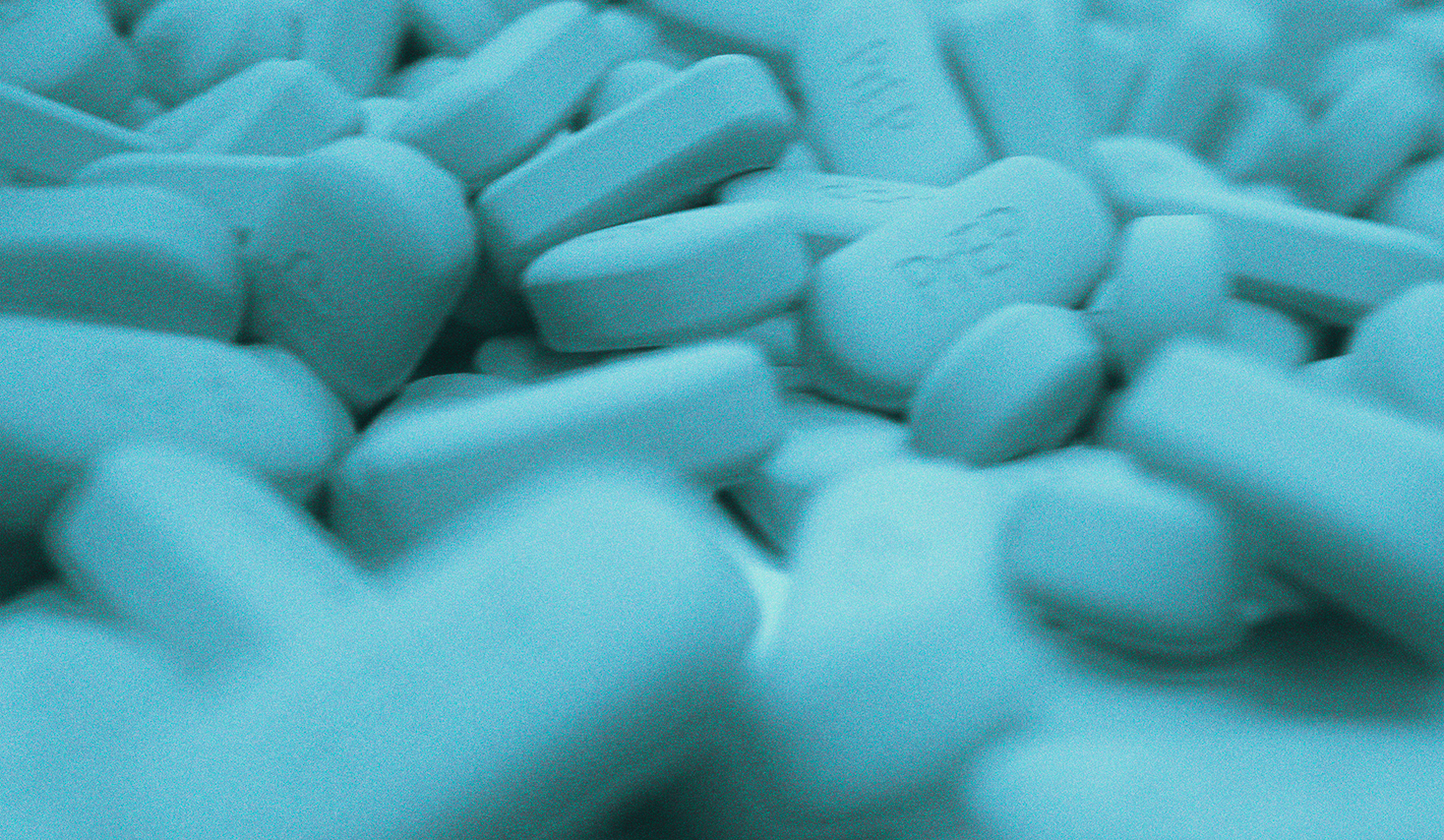What is the future of PrEP under Trump 2.0?
PrEP advocates say that the threat of funding cuts and policy changes by the incoming power players could jeopardise PrEP access and the push toward ending the… The post What is the future of PrEP under Trump 2.0? appeared first on GAY TIMES.


PrEP advocates say that the threat of funding cuts and policy changes by the incoming power players could jeopardise PrEP access and the push toward ending the HIV epidemic.
THIS ARTICLE FIRST APPEARED ON UNCLOSETED MEDIA A NEW INVESTIGATIVE LGBTQIA+ FOCUSSED NEWS PUBLICATION.
WORDS TIM MURPHY

In 2022, the highly effective HIV prevention drug regimen known as PrEP (short for preexposure prophylaxis) was dealt a narrow blow. In Texas, Reed O’Connor, a federal judge known to rule conservatively, decreed that a handful of employers did not have to follow an Affordable Care Act (ACA) rule mandating 100% insurance coverage for preventive HIV measures like PrEP. The employers had argued that because PrEP was widely used by men who have sex with men (MSM), it violated the employers’ beliefs under the Religious Freedom Restoration Act.
One of the employers, Braidwood Management, is being represented by Gene Hamilton, who worked for the Trump administration’s Justice Department and is now Vice President of America First Legal, a conservative public interest organisation headed by Stephen Miller, who will serve as Trump’s Deputy Chief of Staff for policy.
On behalf of the employer, Hamilton argued that covering PrEP promoted “homosexual behaviour” and “violated his religious beliefs by making him complicit in encouraging those behaviours.” After hearing the arguments, O’Connor wrote in his decision that the employer “has shown that the PrEP mandate substantially burdens its religious exercise.”
While the ruling only applies to the respondents in question, the Supreme Court announced last week that they will review part of the case that challenges the structure of the US Preventive Services Task Force, a part of the Department of Health and Human Services that issues recommendations for preventive medical services. SCOTUS will determine whether the government, via the ACA, has the right to mandate 100% insurance coverage of recommended services like PrEP, along with a variety of other preventive services like cancer screenings and heart statins, at no cost to patients.
As SCOTUS gets set to hear the case, advocates wait with bated breath, compounded by an incoming Trump administration and a GOP-led Congress packed with figures like House Speaker Mike Johnson, who has spoken of the GOP’s intention to cut numerous healthcare programs and has compared gay marriage to giving people the right to marry their pets or paedophiles the right to marry children.
In November, Trump picked Robert F. Kennedy, Jr. to lead the Department of Health and Human Services (HHS), which comprises crucial agencies, including the National Institutes of Health, the Federal Drug Administration, the Centers for Disease Control and Prevention (CDC), and the Centers for Medicare and Medicaid.
Kennedy has not only spoken of massive cuts, dismissals, and changes across HHS agencies, but he has also called for an eight-year “break” in infectious disease research and has questioned the proven truth that HIV causes AIDS.
In addition, he has also supported the views of notorious deniers that HIV causes AIDS, including Peter Duesberg, and wrote a glowing quote for Rebecca V. Culshaw’s book “The Real AIDS Epidemic.” Culshaw’s book is a denialist tract. In the introduction, she calls HIV drugs, which have saved millions of lives worldwide, “toxic drugs being foisted on the Black and gay communities” that “constitute one of the worst medical violations of human rights since the Tuskegee Syphilis Experiment.”
These recent political developments have PrEP advocates concerned. “If we lose funding across various programs, we’re not going to get anything done with continuing to advance PrEP access,” says Jeremiah Johnson, executive director of PrEP4All, a group formed in 2018 that has been advocating for a federal government-run program that would make PrEP both free and accessible. “And now that we have a Republican trifecta in D.C., I’m fearful that all these funding streams are going to be targets.”
The powerful – and uneven – promise of PrEP
Since its first daily oral version was approved in 2012, PrEP – which, when adhered to, prevents one getting HIV by roughly 99% – has played a key role in decreasing new HIV diagnoses in the U.S. Diagnoses have dropped the most in states with the highest usage of PrEP, such as New York, California and Illinois. PrEP now comes in both branded and cheaper generic oral versions, as well as an every-other-month injectable, and it is seen as the tool most capable of ending the HIV epidemic in the US.
“PrEP has been a game-changer,” says John Meade, a senior program manager for policy at AVAC, an HIV prevention advocacy group, and a member of PrEP in Black America, a group of HIV experts and advocates devoted to increasing PrEP use among African Americans.
Despite these groups’ efforts, PrEP uptake has been starkly unequal. A 2022 CDC analysis found that 94% of white people in the U.S. who could benefit from PrEP (mostly MSM, HIV’s largest risk group) have been prescribed it compared to 13% of Black people and 24% of Hispanic people who could benefit from the medication. These disparities exist even as Black and Hispanic MSM remain the groups with the highest rates of new HIV infections.
There are geographic disparities as well: Liberal and affluent states have high rates of PrEP usage, whereas conservative and low-resource states, particularly in the Deep South, have far lower rates. A 2024 study found that usage ranged from 22% in New York to 4% in West Virginia.
In a recent Uncloseted Media investigation that looked at racial disparities and access to PrEP, the story of Dorian McCuller – a young gay Black man in Virginia who, having never heard of PrEP, was diagnosed with HIV on his 19th birthday – spoke to the dearth of awareness and understanding of PrEP among those who could most benefit from it. “If I had known [about it], I would’ve gotten on PrEP,” he said.
That knowledge and readiness gap troubles Meade. “We not only have two branded versions, Truvada and Descovy, we also have generics and injectables – all the tools we need to end the HIV epidemic in the U.S.,” he says.
“The only challenge is getting it to the communities that need it most – that’s the missing piece of the puzzle.”
It’s precisely due to the struggle to get PrEP to those who could most benefit from it that advocates nationwide are nervous about the incoming Trump administration, GOP-led Congress and right-majority Supreme Court. “If we lose funding, we’re not going to get anything done,” says Meade.
Hard to read the tea leaves at this point
Currently, Meade says it’s difficult to know what’s going to happen. The incoming Trump administration may stand behind PrEP and other prevention methods, such as expanded HIV testing. After all, it was the first Trump administration that initiated the federal Ending the HIV Epidemic (EHE) effort, which Trump shouted out in his 2019 State of the Union address: “My budget will ask Democrats and Republicans to make the needed commitment to eliminate the HIV epidemic in the United States within 10 years. Together, we will defeat AIDS in America.”
In addition, Trump’s first administration rolled out some modest but not terribly effective measures to increase PrEP access. Although Trump scapegoated transgender people during his 2024 campaign and bragged about appointing the Supreme Court justices that brought down Roe v. Wade, he’s never said anything indicating opposition to HIV prevention.
With the exception of the case heading to SCOTUS, PrEP has not yet come under the intense right-wing backlash that has dealt various blows to reproductive healthcare and gender-affirming healthcare for trans minors, which has already been banned in 26 states.
On the flip side, the incoming administration and Congress have also signalled clear intentions to cut or alter a variety of healthcare programs that deliver not only PrEP but a wide range of medical care, including Medicaid and the ACA, to countless Americans. And last year, the House of Representatives proposed $770 million in cuts to HIV-specific programs.
The funding cuts were blocked by the Democratic-led Senate; however, as of this year, the Senate majority flips to the GOP. This time around, Republicans are talking about measures such as putting hard caps on Medicaid funding to states. This cutback would mean that many states that have already been lifting income caps for Medicaid in the past decade, increasing national Medicaid coverage for millions of people, may have to stop doing so.
Such cuts would be a bitter comedown for HIV advocates from Biden’s White House years. Supported by a Democratic-led Senate, the Biden administration made no substantial gains on HIV but still upheld most of the HIV advocacy community’s wishes, including awarding $17 million from HHS to 46 health centres nationwide to increase access to PrEP and other preventative measures. Perhaps most importantly, the Biden administration amplified and promoted core scientific knowledge that PrEP for HIV-negative people and medical viral suppression for HIV-positive people were key ways of ending the epidemic in the U.S.
But with the impending Republican trifecta, that status quo is on the line. Meade says that he hopes to avoid the worst cuts and changes by showing Republican lawmakers the direct impact HIV funding has on their districts.
“The GOP has to be 100% united to get cuts through,” he says. “So, I’m hoping that there are some reasonable folks on the [Republican] side of the aisle that will listen to constituents who say, ‘I’m representing Georgia, or Alabama, that has some of the biggest HIV clinics and research institutions in the country, and those bring jobs to my state or district.’ Maybe that will make some reps think twice before cutting these programmes.”
Johnson says this current moment is particularly nerve-wracking. “It’s difficult for us, right now, to fully prepare for what we could face because we don’t know exactly what will happen this year. But we’ve seen bipartisan support for PrEP scale-up, so I’m hopeful that will continue – and that we’ll avoid any mis- or disinformation around PrEP.”
As for SCOTUS’ review of the ruling, it goes beyond PrEP to the larger question of whether the ACA has the right to make insurers fully cover an array of preventive services, such as: screenings for cancers, depression and other illnesses; immunisations; preventive medication for chronic conditions like heart disease; counselling on health behaviours related to weight management, alcohol and drug use; and prenatal testing.
“A pillar of the ACA is at risk here,” says Jose Abrigo, HIV Project Director for the LGBTQ law nonprofit Lambda Legal, which is following the case closely but is not involved in it. “Preventative services are crucial to the nation’s health,” he says, adding that if SCOTUS rules broadly against full-coverage mandates within the ACA, “almost half the nation’s healthcare is at risk.”
On the eve of a breakthrough
Nervousness about the future of PrEP funding is occurring on the eve of a massive breakthrough. Last year, drugmaker Gilead, whose drug Truvada was the first to be approved for PrEP in 2012, announced data showing that another of its drugs, an injectable called lenacapavir, was capable in large trials of completely preventing HIV with just two shots a year. The development was hailed as a bombshell breakthrough – the closest science has ever come to an HIV vaccine. It is widely believed that the FDA will allow the drug to come to market this year.
However, if SCOTUS rules that the government doesn’t have the power to mandate health plans with full coverage of PrEP, another blow would be dealt to HIV prevention.
With all these potential forces arrayed against PrEP, advocates say that they will have to fight hard on both the federal and state level to retain as much government funding and support as possible. In D.C., Meade says advocates are waiting to see which lawmaker will step up to fill the HIV leadership vacuum created by the departure of longtime HIV-funding champion Rep. Barbara Lee as well as of Rep. Jenniffer González-Cólon, both of whom chaired the bipartisan Congressional HIV/AIDS Caucus, which advocates for HIV funding and programs in Congress.
“We also need someone on the Appropriations Committees to fight against cuts,” Meade added, referencing the powerful subsections of the House and Senate that determine how much money is spent on what. Meade also urged anyone concerned with the future of PrEP funding, and healthcare funding in general, to consider joining a state or local healthcare advocacy group that conducts visits to lawmakers both in D.C. and in their district offices.
Johnson says that the stakes are dire. “If we lose the funding we have, which is already insufficient, there’s likely to be significant disruption to taking PrEP for a great many individuals, whether they’re insured or not. And that will lead to more HIV infections, which will lead to additional healthcare costs for the American healthcare system. We’re not going to be able to replicate this federal government infrastructure elsewhere if it’s lost.”
At the same time, Johnson urges advocates to stay strong. “The sexual health needs of marginalised communities are always under attack. So, we need to continue doing what we always do, which is to put one foot in front of the other, assess the situation and come up with strategies that really work. We can’t afford to let up on the gas now.”
If objective, nonpartisan, rigorous, LGBTQ-focused journalism is important to you, please consider making a tax-deductible donation through our fiscal sponsor, Resource Impact, by clicking this button:
Donate to Uncloseted Media
The post What is the future of PrEP under Trump 2.0? appeared first on GAY TIMES.

 Mark
Mark 





